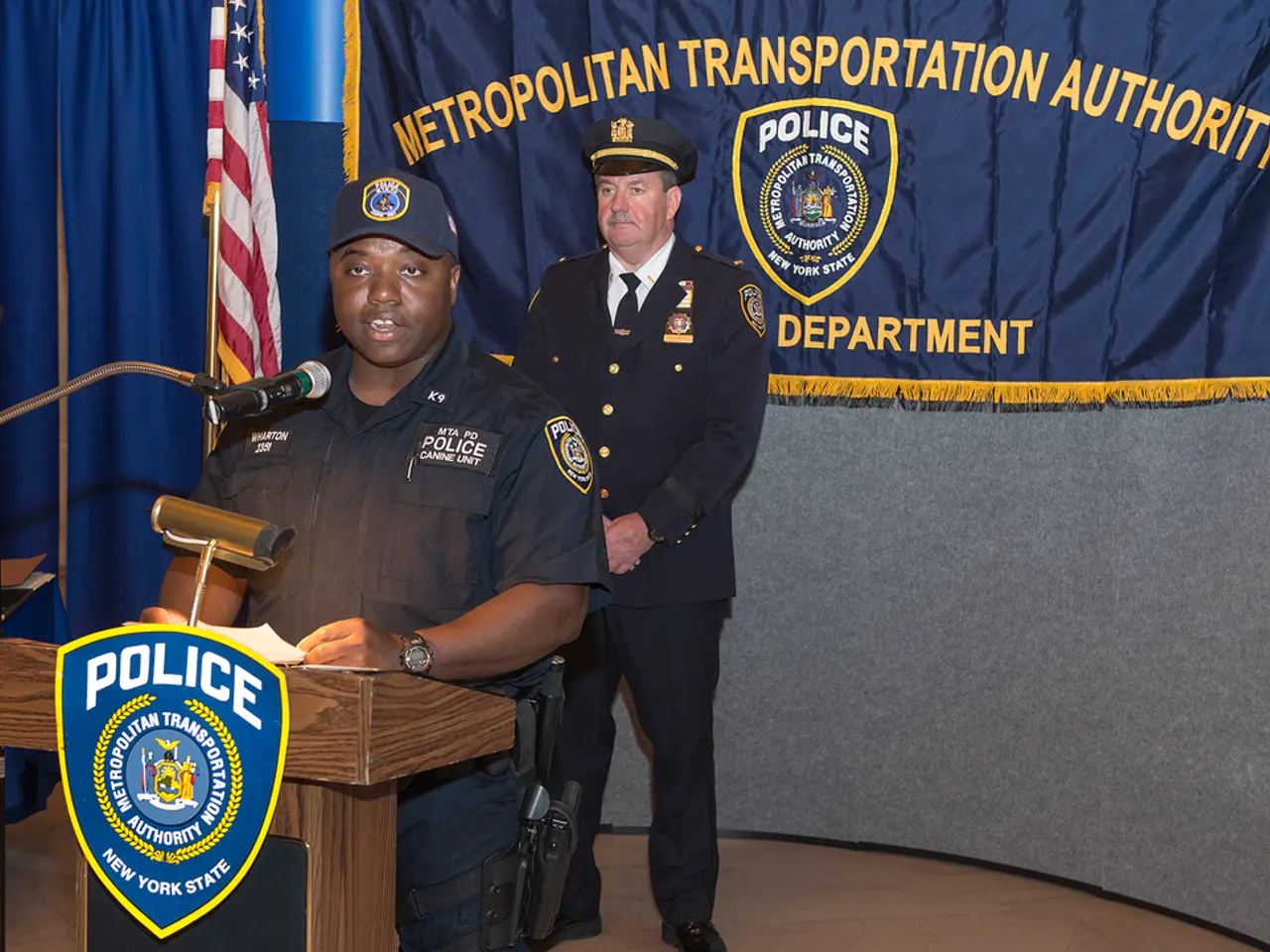Proposal for a worker protection directive on risks from ionising radiation sought by the Commission
In the heart of Germany, the city of Düsseldorf played host to the Rosenmontag parade, a vibrant and historically significant event that is part of the Rhineland Carnival tradition. This annual spectacle, one of the largest and most lively carnival parades in the country, takes place alongside those in Cologne and Mainz.
History and Significance
The Rosenmontag or Rose Monday parade in the Rhineland can be traced back to the 19th century, with origins in political and social expression during carnival season. Although detailed historical accounts focus more on Mainz's parade starting in 1838, Düsseldorf's carnival is similarly rooted in regional carnival culture and is celebrated as a key event in North Rhine-Westphalia, where Düsseldorf is the capital.
The parade is traditionally held on the Monday before Ash Wednesday, marking an important moment of festivity before Lent. It is famous for political satire, featuring giant floats that often mock political leaders and topical issues, reflecting the carnival’s historical role as a public outlet for social commentary.
Crowd Size
While specific crowd numbers for Düsseldorf are not available, the similar Mainz Rose Monday parade is known to attract over 500,000 spectators with around 9,500 active participants, suggesting that Düsseldorf’s parade also draws very large crowds, likely in the hundreds of thousands. Düsseldorf, being a major city and carnival hub in Germany, typically sees extensive local, national, and international attendance.
Safety Measures and Common Incidents
Although the search results do not provide explicit details on safety protocols or typical incidents for the Düsseldorf Rosenmontag parade, large public events in Germany generally involve comprehensive security planning, including police presence, crowd control barriers, medical services, and emergency response readiness. Common incidents at such large events may include crowd congestion, minor injuries, and occasional disturbances, but extensive safety measures aim to minimize risks.
In the Rosenmontag parade this year, four criminal charges were filed for pickpocketing, attempted dangerous bodily harm, and simple bodily harm, compared to two last year. Additionally, 26 people were given exclusion orders for the city center, compared to 18 last year, and one troublemaker spent the rest of the day in police custody, the same as the previous year. One person was arrested due to an existing warrant.
Despite the occasional incidents, Police Director Oliver Strudthoff expressed satisfaction with the Rosenmontag parade operation, stating that the concept worked well. Around a thousand police officers were deployed for the parade to ensure the safety of revelers during the event and afterwards. The weather during the Rosenmontag parade was beautiful.
In conclusion, the Rosenmontag parade in Düsseldorf is a historically significant cultural festival characterised by political satire, massive public participation, and elaborate parades. It is a cornerstone of Rhineland carnival traditions with very large crowds, and while specific safety and incident data for Düsseldorf are not detailed here, strong public safety frameworks are typically in place for events of this scale. The parade started at 12:24 PM and ended at 5:30 PM, covering an approximate five-kilometer route. The fifth season of Rosenmontag was celebrated in Düsseldorf.
- Given the massive attendance at the Rose Monday parade in Mainz, one can infer that the Düsseldorf parade, as a major city and carnival hub in Germany, also attracts a significant number of participants, likely in the hundreds of thousands, from the local, national, and international community.
- Although specific safety protocols for the Rosenmontag parade in Düsseldorf are not explicitly detailed, large public events in Germany typically involve comprehensive security planning, including police presence, crowd control barriers, medical services, and emergency response readiness, to minimise risks.
- In addition to its traditional elements of political satire and cultural significance, the Rosenmontag parade in Düsseldorf serves as a platform for general news, mental health discussions, fitness-and-exercise, health-and-wellness, crime-and-justice, and science-related commentary, reflecting the diverse spectrum of issues relevant to modern-day society.




